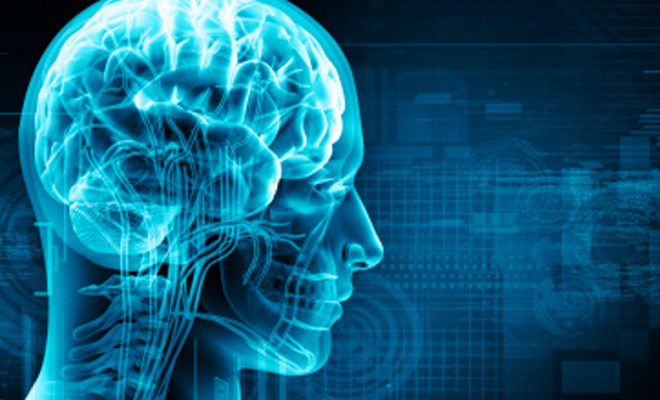 Photo: Shutterstock
Photo: Shutterstock
Intermittent Fasting Skyrockets Brain Function
New research suggests that you can increase brain function and slow the aging process by fasting. In fact, it is well known that bouts of intermittent fasting have a powerful anti-inflammatory effect on the entire body. Leading scientists now believe that intermittent fasting is one of the key strategies for maximizing brain function.
Researchers at the National Institute of Aging in Baltimore have reviewed the literature and performed studies to indicate the positive effects of fasting on overall brain health. Professor Mark Mattson, who the head of the Institute’s laboratory of NeuroSciences, made it clear that these benefits were not just related to calorie restriction, but instead to intentional periods of intermittent fasting.
What are the physical results of eating and fasting?
Eating stimulates the body to go into building phase where we are anabolic in nature and store both nutrients and toxins. This phase is essential for building new cells and tissues and store nutrients for times of scarcity. This building phase of physiology is predominately led by the hormone insulin.
Fasting for more than 6 hours begins the cleansing phase. The cleansing phase is catabolic in nature in that it tears down old damaged cells. This process turns on brain autophagy, or “self-eating,” in where the cells recycle waste material, regulate waste products and repair. These genetic repair mechanisms are turned on through the release of human growth hormone (HGH).
Intermittent fasting is one of the most powerful modalities for reducing inflammation; boosting immunity and enhancing tissue healing. This is one of the reasons why many people feel nauseated when they have infections. This innate mechanism is the body’s way of influencing us to fast so it can produce the right environment to boost natural immunity.
How does fasting boost human growth hormone? (HGH)
HGH is known to create physiological changes in metabolism to favor fat burning and protein sparing. The proteins and amino acids are utilized to improve brain and neuron processing. They also repair tissue collagen which improves the functionality and strength of muscles, tendons, ligaments, and bones. HGH also improves skin function, reduces wrinkles and heals cuts and burns faster.
Researchers at the Intermountain Medical Center Heart Institute found that men, who had fasted for 24 hours, had a 2000 percent increase in circulating HGH. Women who were tested had a 1300 percent increase in HGH.
The researchers found that the fasting individuals had significantly reduced their triglycerides, boosted their HDL cholesterol and stabilized their blood sugar.
The healthy dance between insulin and HGH
HGH and insulin are opposites in function. HGH is focused on tissue repair, efficient fuel usage and anti-inflammatory immune activity. Insulin is designed for energy storage, cellular division and pro-inflammatory immune activity.
Insulin is the dominant player in this game. When conditions demand an insulin release (carbohydrate intake), HGH is inhibited. Additionally, too much protein or fat may not stimulate insulin but they will inhibit HGH release.
Studies have indicated that the disruption of neuronal autophagy results in accelerated neurodegenerative states throughout the brain. Elevated circulating levels of insulin reduce the amount of neuronal autophagy and cause metabolic problems as well as accelerated degenerative states.
Bouts of intermittent fasting are essential for the brain to clean itself up and drive new neurons and communication lines for optimal function.
The connection between fasting and exercise
The cleansing phase also acts like a slinky that is being spring-loaded for when the body moves into the building stage. It provides a sort of pre-load that allows the body to adapt in an incredible manner when it goes into the building phase. This enhances the neuronal connections and improves brain function.
Experts believe the intermittent fasting puts the brain cells under mild stress that is similar to the effects of exercise on muscle cells. The stress causes them to adapt and get more energy efficient. The body recovers from intense exercise through both the building and cleansing phases.
How does fasting boosts brain-derived neurotrophic factor? (BDNF)
BDNF levels govern the formation of new neurons and the development of synapses and various lines of communication within the brain. Higher levels of BDNF lead to healthier neurons and better communication processes between these neurological cells. Low levels of BDNF are linked to dementia, Alzheimer’s, memory loss and other brain processing problems.
Research has shown that bouts of fasting have a great anti-inflammatory effect on the entire body. Sufferers from asthma have shown great results as have preliminary reports on individuals with Alzheimer’s and Parkinson’s. Mattson and colleagues are preparing to study more details about the impact of fasting on the brain using MRI technology and other testing.
A guide to the best strategies for fasting
The best way to begin fasting is by giving your body 12 hours between dinner and breakfast every single day. This allows 4 hours to complete digestion and 8 hours for the liver to complete its detoxification cycle. After this is a standard part of lifestyle, try taking one day a week and extending the fast to 16-18 hours. Eventually, you may choose to do a full 24 hour fast each week.
During the fasting period it is great to drink cleansing beverages such as fermented drinks, herbal teas, water with infused superfood extracts, water with lemon or apple cider vinegar, etc. These enhance the cleansing process by providing anti-oxidants and micronutrients that enhance healing while not interacting with insulin or HGH levels.
A word of caution before fasting
Before one begins a lifestyle of intermittent fasting they should first remove as much sugar and grains from their diet as possible. This will create better blood sugar balance and help regulate insulin and the stress hormone cortisol. The diet should be built around good fats, anti-oxidants, clean protein and fiber.
Keep in mind, it can take three to seven days to stabilize blood sugar and stress hormones before intermittent fasting would be advised.
Once the body is properly trained, most people are able to easily do a 16-18 hour fast every day. The easiest way to do this is by missing breakfast to extend the overnight fast. Have a light lunch or mid-afternoon snack and then a large dinner. For many, they feel so great doing this that they choose to never go back to eating any differently. Do you have an experience with fasting? Post your comments – below.
Dr. Jones’ “So What?” “Now What” Conclusion
The author of this article is one of my very best friends and was my room mate through my doctorate program at Life University. He runs a cutting edge health center in Atlanta and runs www.DrJockers.com, which I would definitely recommend checking out.
The major take aways from this article are:
- If you’re interested in maximizing your brain function than intermittent fasting in combination with an anti-inflammatory nutrition plan is the way to go (nutrition plans found in my ReNew program here)
- If you haven’t watched my video on intermittent fasting then check out “Increase HGH 1300-2000% Through Fasting“.
- You may want to start intermittent fasting by taking baby steps. I would recommend fasting 3 days per week where you’re consuming your 3 meals within a 6-10 hour time frame, and then work your way up from there.
If you have any questions or comments, as Dr. Jockers has said, please leave them below. Thanks!
About the author: Dr. David Jockers owns and operates Exodus Health Center in Kennesaw, Ga. He is a Maximized Living doctor. His expertise is in weight loss, customized nutrition & exercise, & structural corrective chiropractic care. For more information – visit: DrJockers.com. Dr. Jockers is also available for long distance phone consultations to help you beat disease and reach your health goals.
References:
http://www.scientificamerican.com/article.cfm?id=new-year-new-understanding
http://www.naturalnews.com/035166_intermittent_fasting_brain_health_calories.html
http://www.naturalnews.com/034277_fasting_longevity.html
http://www.naturalnews.com/034704_intermittent_fasting_fitness_HGH.html
http://www.guardian.co.uk/society/2012/feb/18/fasting-protect-brain-diseases-scientists
http://www.marksdailyapple.com/fasting-brain-function/#axzz2IWKpAQZc







